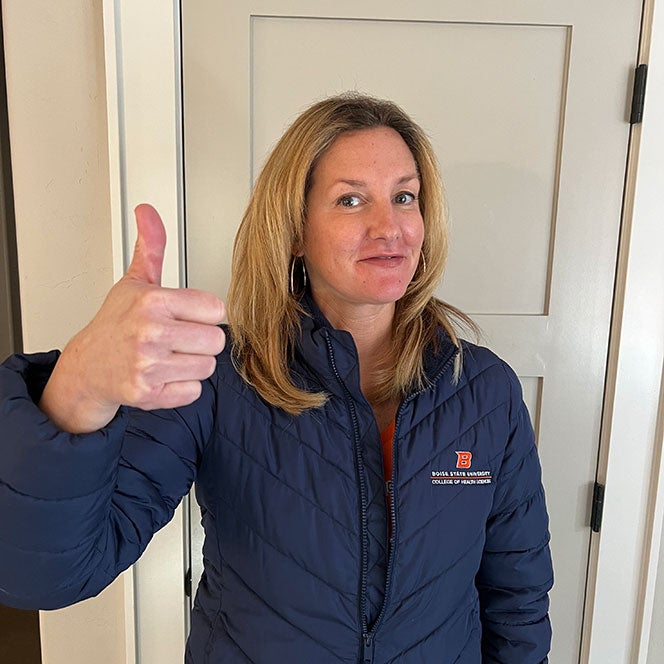
Here, College of Health Sciences Dean Jo Powers talks about what inspires her and what’s next, for her and for the college. Powers served as senior associate dean of the College of Health Sciences for seven years and was named near the beginning of this year to replace Tim Dunnagan; she became dean July 1.
What is your first memory of health care?
Probably going to the doctor’s office for check-ups and immunizations as a young child.
Did that have any bearing on the professional path you have chosen, or was there another moment that set you down this path?
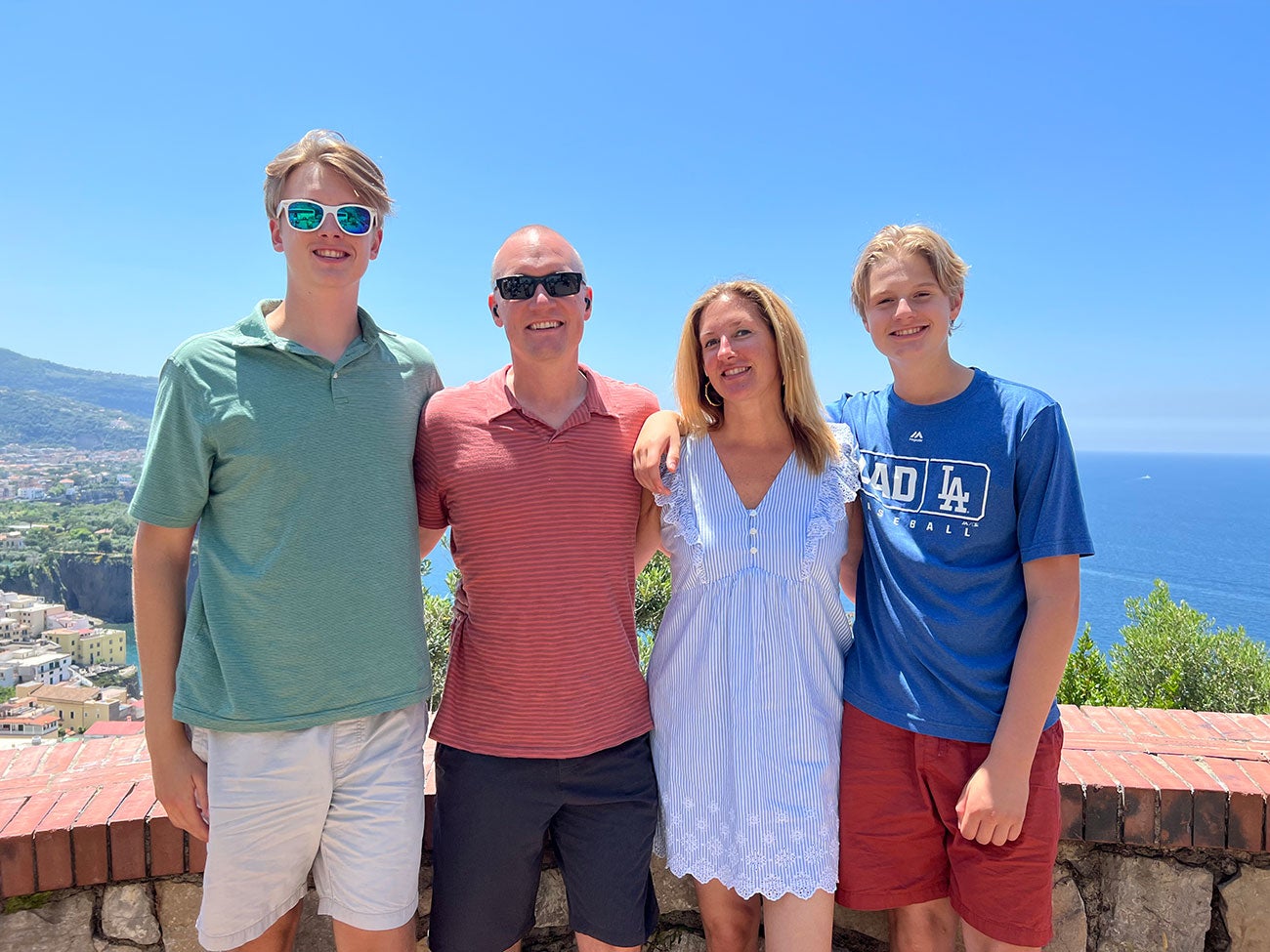
An opportunity in Africa, combined with an introductory course, had a profound impact on helping me to “find” social work. I had no idea social work was a career before that introductory course.
But there were lots of little moments over the years: in my clinical placements, working with vulnerable youth, experiences in community work and research, and certainly with faculty and mentors that continued to confirm for me that this was a good career fit for me.
So your undergraduate experiences really led to where you are today?
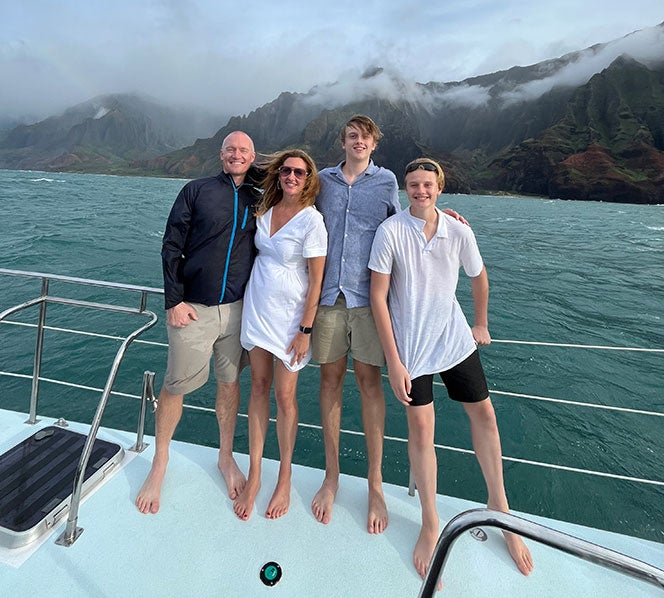
I had the opportunity to travel to Africa during my undergraduate studies after my junior year. That experience was life-changing, and I decided that my career would be dedicated to social justice and helping others — at that point in time, I had no idea what that might look like.
My senior year, I took an Introduction to Social Work class, and that set me on the path! I applied to a master’s in social work program during my senior year.
I can say that it is incredibly challenging at times, but also very rewarding. I am never bored. There is always more to learn, and plenty of opportunity to do good work with others to make a positive difference. To me, that’s a pretty good job.
What do you most like about university culture?
So many things! The people, the energy students bring, the new knowledge that is created and shared. I find a lot of hope in what an education can do to change a student’s life forever. And the friendships formed with colleagues across campus are invaluable. I’m inspired by their work and I learn a lot from them.
What makes COHS so special?
Again, the people. While we have different disciplines, schools and units in our college, there is a shared mission and passion around health care and well-being. It’s easier to collaborate and work together with a unifying purpose like that. And our folks are motivated to make a positive impact in the lives of our students and our communities.
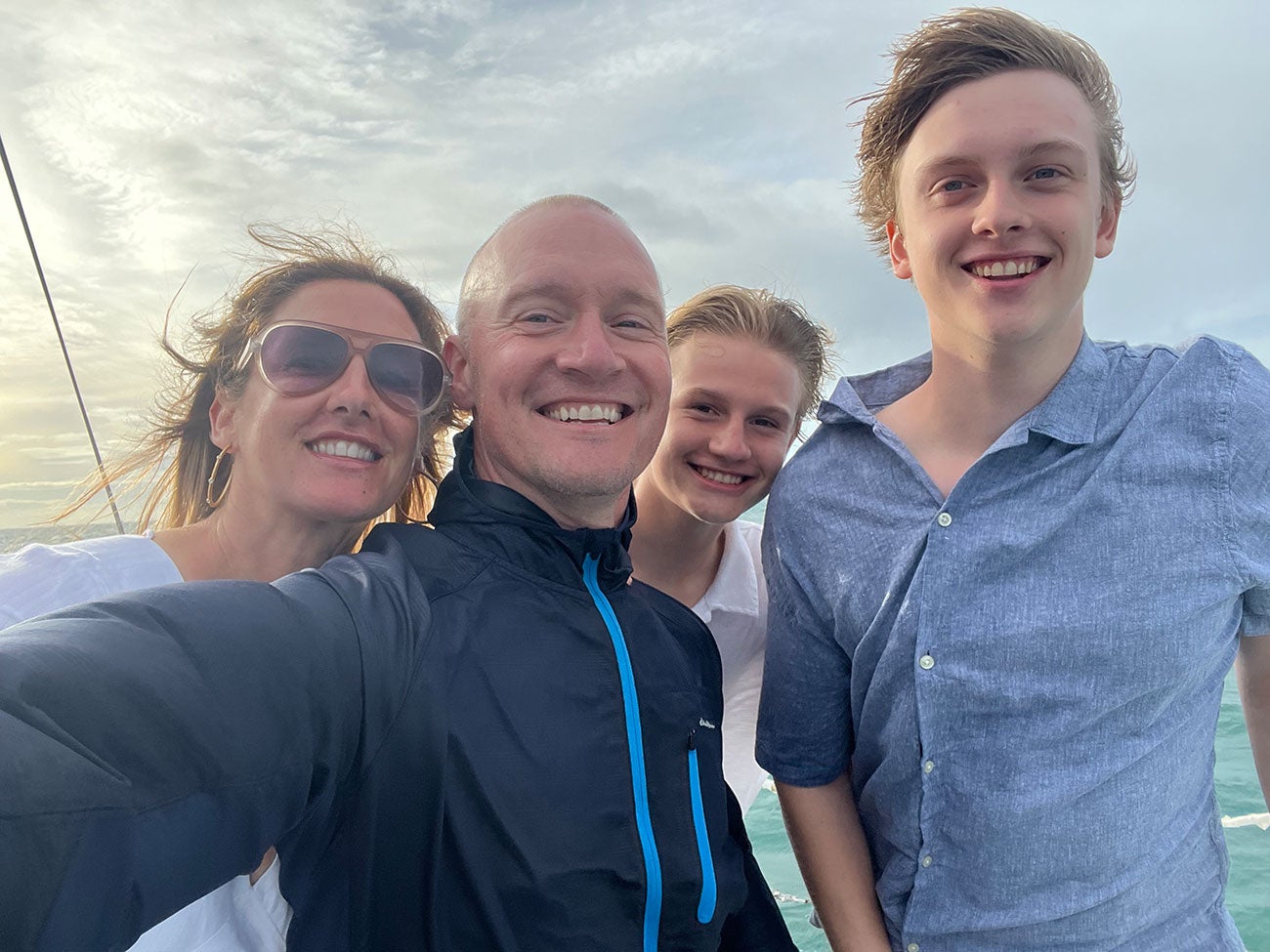
What does a dean do?
Great question — and the answer probably varies across colleges and deans. I think in summary though, a dean is a leader and champion for the success of their college. They help to set and support the vision — and then spend time investing in the success of that vision.
Effort is spent in identifying and securing funding, investing in key stakeholder relationships, working through problems and removing barriers, and making sure the folks with expertise in their areas have what they need to be successful in teaching, research and service.
What do you think are the biggest challenges facing the College of Health Sciences?
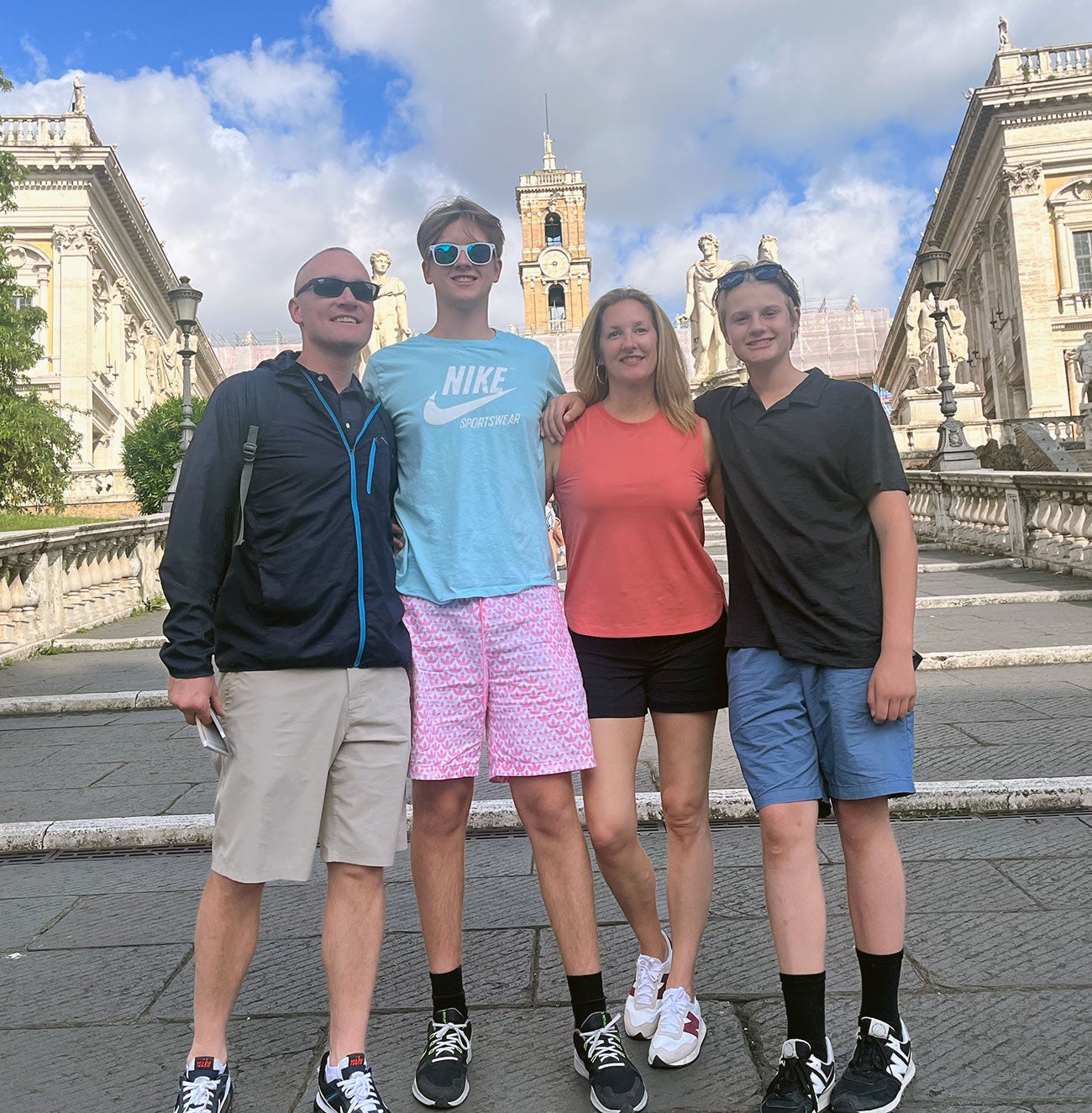
Honestly, space. We have phenomenal programming and degree opportunities, but for so many of those, we are limited by the number of clinical placements and internships that we can place our students in. Students can’t graduate with an accredited degree without these clinical placements, and we have more demand than available spots in several of our cohort programs. Additionally, we are limited with classroom space to house students as well. Space is a challenge.
What are the biggest opportunities?
There is such a current and predicted need in Idaho for health care workers. The shortage we will face within the next several years is startling. This stark reality provides us with a great opportunity to work closely with stakeholders and community partners to think creatively about how we can expand in new and innovative ways. It’s also a great chance for us to collaborate across the state to collectively meet the need and support our community.
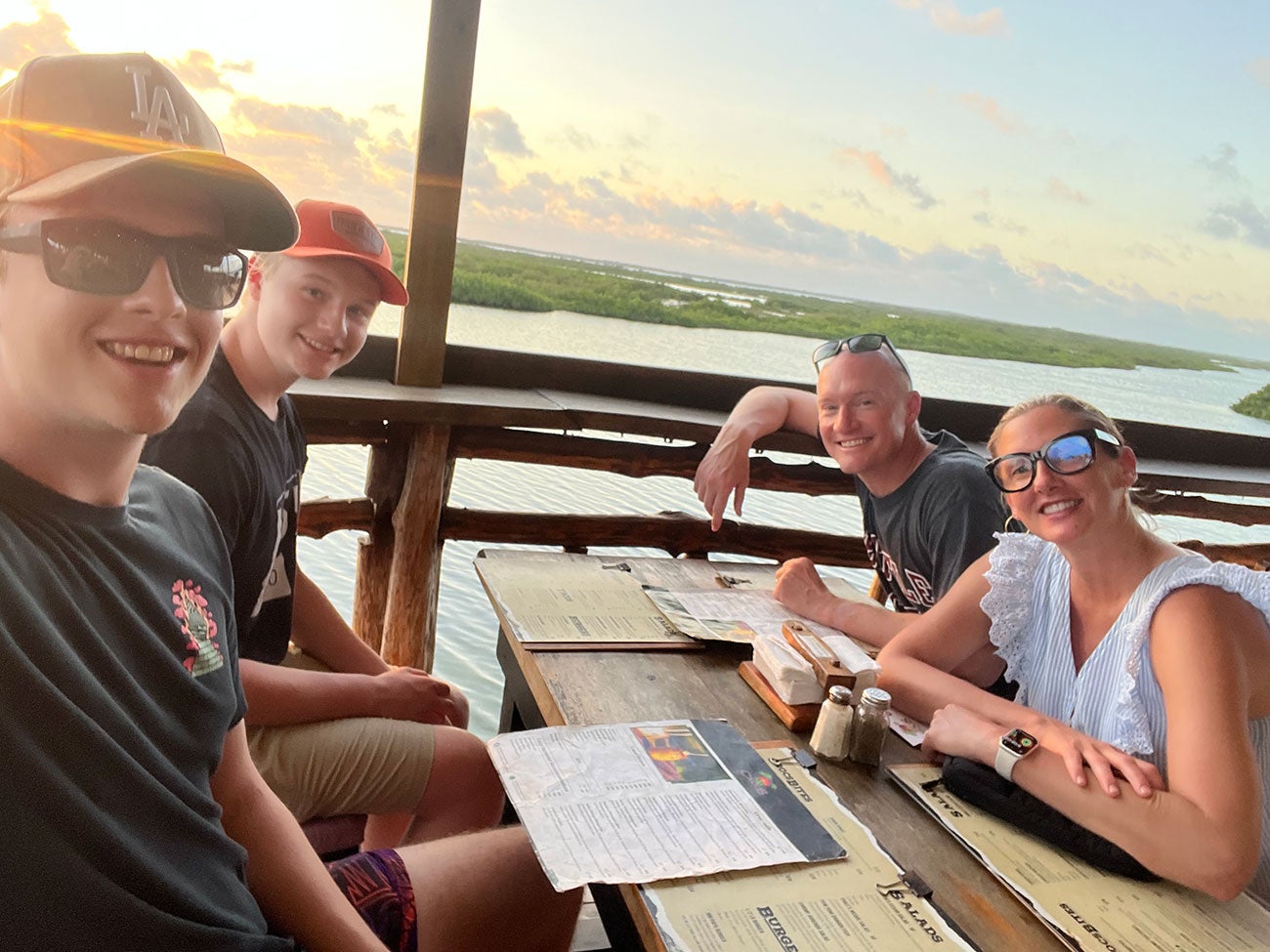
How do you anticipate spending your first year as dean?
My hope is to continue the momentum of all of the good work happening in the college. To do this, I need to spend time with each department, better understanding what is going well and where there might be challenges. This will allow me to leverage maximum support and optimize success for our programs. Similarly, I plan to invest time with our campus and community partners; they are critical to our success.
What advice do you have for incoming students?
Never hesitate to reach out to your professors! They are here to help you — and they really like getting to know you.
